libertarianism
About us
An open, user owned community for the general disscussion of the libertarian philosophy.
- Libertarianism is the belief that each person has the right to live his life as he chooses so long as he respects the equal rights of others.
- Libertarians defend each person’s right to life, liberty, and property.
- In the libertarian view, voluntary agreement is the gold standard of human relationships.
- If there is no good reason to forbid something (a good reason being that it violates the rights of others), it should be allowed.
- Force should be reserved for prohibiting or punishing those who themselves use force.
Most people live their own lives by that code of ethics. Libertarians believe that that code should be applied consistently, even to the actions of governments, which should be restricted to protecting people from violations of their rights. Governments should not use their powers to censor speech, conscript the young, prohibit voluntary exchanges, steal or “redistribute” property, or interfere in the lives of individuals who are otherwise minding their own business.
Source: https://www.libertarianism.org/essays/what-is-libertarianism

Rules
1. Stay on topic
We are a libertarian community. There are no restrictions regarding different stances on the political spectrum, but all posts should be related to the philosophy of libertarianism.
2. Be polite to others and respects each others opinions.
Be polite to others and respects each others opinions. We don't want any form of gatekeeping or circlejerk culture here.
3. Stay constructive and informational
In general, all types of contributions are allowed, but the relevance to this community must always be evident and presented openly by the contributor. Posts that do not meet these requirements will be removed after a public warning. Also remember to cite you sources!
4. Use self-moderation measures first before reporting.
This community is fundamentally built upon freedom of speech. Since everyone understands libertarianism differently and we do not want to exclude any kind of content a priori, we appeal to the individual users to block/mute posts or users who do not meet their requirements. Please bear this in mind when filing a report
view the rest of the comments
That's exactly the point: I believe that you cannot exclusively own the ideas or the fruits of your intellect. You can't own them because you have no ultimate control over them. And if you have no ultimate control over them you can't restrict them getting used by somebody else. More precisely: You still have control over your idea as the fruit of your labor and it is under your control exactly what you do with it. But you cannot control someone else's idea, even if it is exaclty the same. Any information that is open in any way can and probably will also be used openly.
Some examples that illustrate this:
I think the core aspect is to realize that work does not necessarily have to be followed by a reward. Just as a tinkerer can spend days working on a device only to discover later that someone else has already solved the same problem, one cannot say that an idea, no matter how innovative or fundamental it may ultimately be, can necessarily be rewarded monetarily. Or in short: work does not necessarily create wages. Is it not rather the decision of the customers whether they entrust their money to whom? Whether they prefer to give it to the original inventor or to a soulless copycat?
I think that in a world that is becoming more and more automated and where machines are slowly taking over the discovery of new formulas and processes, the story behind the products is becoming more and more important.
Yes - it is certainly the case that once a thing that exists only conceptually - an idea or composition - is loosed into the world, control of it is difficult at best.
So let's narrow the scope.
TO THE DEGREE THAT the thing might be controlled after being loosed into the world, who has the more reasonable claim to exercise that control? The person who created it or someone else?
nobody/everybody has the right to claim it. Why should anybody be able to restrict the freedom of somebody else if its own freedom isn't diminished by any degree?